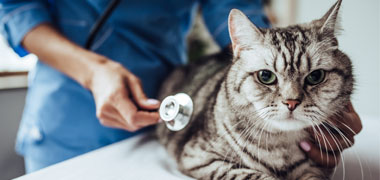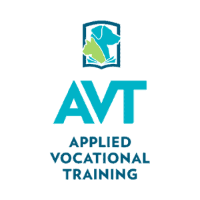
How do I become a wildlife rehabilitator?
Certificate IV in Veterinary Nursing
- Completed Certificate III (AQF Level 3) or above in an animal science discipline OR
- Completed Certificate II in Animal Studies or equivalent qualifications OR
- Evidence of relevant skills, knowledge and employment experience








Diploma of Animal Technology
- There are no mandated entry requirements.



Certificate III in Wildlife and Exhibited Animal Care
- There are no mandated entry requirements.






Bachelor of Science (Animal Biology)
- There are no mandated entry requirements.


Bachelor of Animal Science
- There are no mandated entry requirements.


Related occupations
Pet Groomer
A pet groomer enhances the appearance of pets through bathing, grooming, and health checks while needing patience, flexibility, and good people skills.
Animal Attendant
An Animal Attendant cares for animals by providing food, monitoring health, cleaning, and grooming. Patience and observation skills are essential.
Kennel Hand
A Kennel Hand manages daily tasks at a boarding kennel, including cleaning, feeding, exercising dogs, and handling grooming while ensuring their welfare.
Cattery Attendant
A Cattery Attendant cares for cats, ensuring their needs are met, maintaining enclosures, and managing check-ins and check-outs.
Kennel Attendant
A Kennel Attendant cares for dogs in a boarding kennel, ensuring they are fed, exercised, and their environment is clean while liaising with owners.
Wildlife Carer
A Wildlife Carer cares for injured native animals and orphans until they can be released back into the wild, requiring flexibility and patience.
Zoo Keeper
A Zoo Keeper cares for animals, maintains enclosures, provides enrichment, conducts presentations, and ensures welfare in zoos or sanctuaries.
Animal Technician
An Animal Technician monitors animal health, provides care, follows procedures, and ensures welfare in research or agricultural settings.
Zoologist
A Zoologist researches animal behaviours, habitats, and genetics, conducts fieldwork, collects samples, and helps manage conservation programs.
Ecologist
An Ecologist studies ecosystems and biodiversity, conducts field surveys, analyses data, develops conservation plans, and advises on sustainability.
Wildlife Conservator
A Wildlife Conservator protects wildlife and their habitats by conducting surveys, assessing species health, and collaborating on conservation efforts.
Animal Welfare Officer
An Animal Welfare Officer ensures humane treatment of animals by investigating abuse, enforcing laws, and promoting proper care and welfare practices.
Livestock Manager
A Livestock Manager oversees the care and management of livestock, ensuring animal health and productivity while complying with welfare regulations.
Wildlife Biologist
A Wildlife Biologist studies animal species and habitats, conducting research to support conservation efforts and manage ecosystems effectively.
Further reading


How to start a career in Veterinary Nursing
7th September 2021)
